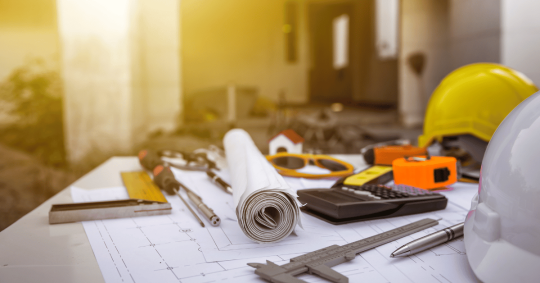Troubleshooting Common Issues With Overhung Load Adaptors

Overhung load adaptors are critical components in various industrial applications, helping transmit power efficiently from a motor to a driven machine. However, like any mechanical component, overhung load adaptors can experience issues that hinder their performance. In this article, we will explore some common problems associated with overhung load adaptors and offer troubleshooting solutions to ensure your machinery operates smoothly.
1. Misalignment
Misalignment is a prevalent issue in overhung load adaptor systems. Misalignment can occur due to various factors, such as improper installation, wear and tear, or changes in the load dynamics over time. Misalignment can lead to increased vibration, reduced efficiency, and accelerated wear and tear on the adaptor and other connected components.
Troubleshooting Tip: Regularly inspect your machinery for misalignment issues. Use precision alignment tools to realign the adaptor and the driven machine if misalignment is detected. Proper alignment will help reduce vibration and ensure efficient power transmission.
2. Excessive Load
Overhung load adaptors are designed to handle specific load capacities. Exceeding these capacities can lead to premature failure, increased wear, and safety hazards. Excessive loads can result from operational changes or system overhauls without considering the adaptor's load limits.
Troubleshooting Tip: Review the manufacturer's specifications for your overhung load adaptor and ensure that the load remains within the recommended limits. If necessary, consider upgrading to a higher-capacity adaptor to accommodate increased loads safely.
3. Lubrication Problems
Inadequate or improper lubrication can cause friction, heat, and wear in overhung load adaptor systems. Over time, this can lead to component failure and reduced operational lifespan.
Troubleshooting Tip: Follow the manufacturer's recommended lubrication schedule and use the specified lubricants. Regularly inspect the lubrication system for leaks or blockages and address any issues promptly. Proper lubrication will help reduce friction, minimise wear, and extend the adaptor's lifespan.
4. Corrosion and Contamination
Corrosion and contamination can adversely affect the performance of overhung load adaptors, leading to reduced efficiency and potential damage to components. These issues are often caused by exposure to harsh environmental conditions, such as moisture, chemicals, or debris.
Troubleshooting Tip: Implement preventive measures to protect the adaptor from corrosion and contamination. This may include installing protective covers, sealing connections, and maintaining a clean working environment. Regularly inspect the adaptor for signs of corrosion or contamination and address any issues promptly.
5. Bearing Failure
Overhung load adaptors typically incorporate bearings to support the load and enable smooth rotation. Bearing failure can result from factors like overloading, inadequate lubrication, or the entry of contaminants.
Troubleshooting Tip: Regularly monitor the condition of the bearings by checking for unusual noise, vibration, or heat. Replace worn or damaged bearings promptly using high-quality replacements that meet or exceed the manufacturer's specifications.
6. Wear and Tear
Over time, all mechanical components experience wear and tear, and overhung load adaptors are no exception. This can lead to reduced performance and operational issues.
Troubleshooting Tip: Implement a regular maintenance schedule that includes inspections for wear and tear. Replace worn components, such as belts, pulleys, or coupling elements, with genuine parts from the manufacturer to ensure optimal performance.
7. Temperature Fluctuations
Extreme temperature variations can affect the materials and performance of overhung load adaptors. Excessive heat can lead to thermal expansion, while extreme cold can make materials brittle.
Troubleshooting Tip: Monitor the operating temperature of your machinery and take steps to control temperature fluctuations. This may include installing cooling or heating systems and using insulation to maintain a stable working environment for the adaptor and connected components.
In conclusion, troubleshooting common issues with overhung load adaptors is essential for maintaining the efficiency and reliability of industrial machinery. Regular inspections, proper maintenance, and adherence to manufacturer's guidelines are key to preventing and addressing these issues. By taking proactive measures to address common problems, you can extend the operational lifespan of your overhung load adaptors and ensure the continued success of your industrial applications.
Here at Robert Cupitt, we stock a range of overhung load adaptors and other power transmission components. Contact our team of experts for assistance in finding the right solutions for your industrial needs.
For more articles like this, visit our knowledge base!